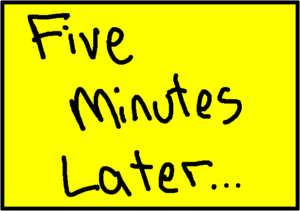How do you measure your everyday productivity?
It is important for you to work better or work harder? Productivity, at its basis, refers to the amount of work produced per one individual or per hour worked. So at the end of the day, why are we talking about being productive, when it all resumes to the amount of work executed? Because productivity translates into results, gratification and finally monetization.
For many people, a great measurement of everyday productivity is managing objectives and tasks. In this case, results may appear after a longer period of time, but that doesn’t mean productivity has decreased.
Another way of measuring productivity is *a 360-degree feedback* from co-workers and employer. This measurement method works best in smaller organizations, where employees receive accurate training on how to offer objective feedback. Other businesses measure productivity by the speed of product release, customer feedback or by individual/ department self- evaluation.
At a personal level, co-working and co-sharing space can increase or reduce productivity. The key factors that interfere with your own working levels are office noise, the ability to adapt. Another factor is the art of listening or not listening to your co-workers.
Why talking less is sometimes better, in order to be productive
More companies are now embracing “agile” meetings to make their teams more productive and efficient. The hardest rule? To keep it under five minutes or be ready to be cut off the table.
The Agile mindset doesn’t state that 5 minutes are enough to be more productive, but behind this rule, there is a simple explanation. People usually talk 15-30 seconds at a time without any social pressure. During this short sprint, the team cuts the chase and makes a decision on the spot. Acknowledging the timeframe you have to use in order to speak out sets a new mindset trend: participants must learn to distill their ideas. Scrum50’s executive creative director, Jennifer Miller, admits that “you sort of need to check your ego at the door.”
At a psychological level, you can apply the 5 minutes rule in your day to day life: from personal discussions with family to public speaking or company presentations. Productivity comes when you are able to fit your ideas into a short phrase, explain it in simple words and deliver your message.
Another way of implementing the 5 minutes rule during a feedback meeting is to give each person in the room 5 minutes to talk, while everyone else is listening, without interrupting the speaker. This way, the speaker receives the confidence that he is being heard and the public receives the gift of sitting down and truly listening.
To end this first part of this topic here’s to Steve Jobs, who’s words are forever changing our way of working: “The people who are crazy enough to think they can change the world are the ones who do.”





